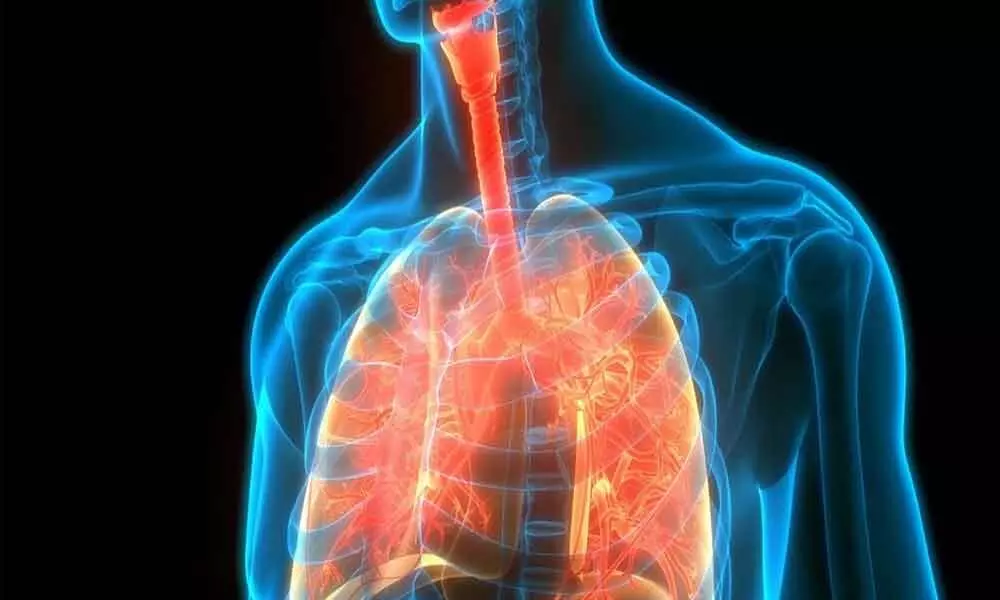Pneumonia could affect health of heart

Pneumonia could affect health of heart
Pneumonia is a common acute respiratory infection that affects the lungs and airways, and it is derived from the Greek word "pneumon" meaning "lung".
Pneumonia is a common acute respiratory infection that affects the lungs and airways, and it is derived from the Greek word "pneumon" meaning "lung". Causes of pneumonia includes bacteria, viruses, fungi, and parasites. Despite advances in antimicrobial therapies, microbiological diagnostic tests, and preventive measures, pneumonia remains the main cause of death from infectious diseases. In light of the COVID-19 pandemic, the risks and consequences of pneumonia have never been more apparent than during this past year in our hospital. In the last 1 year, 60%-80% of pneumonia cases were due to COVID-19.
Our airway is constantly exposed to micro-organisms through the air we breathe. Pneumonia develops if your body's defenses are not adequate, you are exposed to a virulent micro-organism, or you are exposed to a very large number of micro-organisms. Risk factors of getting pneumonia include old age, chronic lung diseases, cigarette smoking, low immune conditions, or other illnesses, such as heart disease, liver diseases, or uncontrolled diabetes.
Depending on the age, severity and underlying health status pneumonia symptoms may vary. Common symptoms include cough often with phlegm/mucus, fever, (temperature higher than 100.4°f or 38°c), trouble breathing, pain when you take a deep breath, a fast heartbeat, or shaking chills. The symptoms of bacterial pneumonia can develop gradually or suddenly while symptoms of viral pneumonia usually develop over a period of several days. Early pneumonia symptoms are like influenza which includes - fever, headache, muscle pain, a dry cough, and weakness and in a few days, it keeps getting worse, with increasing cough, breathlessness, and muscle pain.
Symptoms may vary in certain populations for example with infants they may not show any signs of infection or may appear restless, sick, and tired.
The red flag signs of pneumonia requiring hospitalization include increased work of breathing, chest pain, blood in sputum, bluish discoloration of lips or fingers, sudden changes in mental awareness. It's important to get medical attention for high-risk groups, including adults older than age 65, children aged two or younger, people with an underlying health condition or weakened immune system.
Involvement of the cardiovascular system after developing pneumonia is an important short and long-term complication. As per various research, pneumonia directly causes or worsens cardiovascular disorders such as heart failure, heart attack, and strokes.
As per our practice, patients who are well enough to be treated as outpatients will undergo minimal diagnostic work-up. This includes a chest radiograph, complete white blood count, electrolytes, creatinine, and oxygen saturation by pulse oximetry. And a sputum specimen should be submitted for culture to know the infective agent whenever possible. Additional tests like CT scan to get a better view of lungs, bronchoscopy to get an ideal microbiological sample may be required in hospitalized patients who fail to improve or worsen during their hospitalization.
The purpose of pneumonia treatment is to remove the infection and prevent any further complications. Most people with mild pneumonia are treated at home with oral antibiotics. People who are seriously ill or are at increased risk for complications may be hospitalized to get intravenous antibiotics initially and will be switched to oral once clinically improving.
A therapeutic approach based on which type of organism is likely to cause pneumonia (called "empiric" treatment) is a key concept that is been followed in many hospitals. While selecting empiric antibiotics, it is been practiced to inquire about antibiotic therapy in the past 3 months and then select an agent that has not been used in that period. Once an etiologic diagnosis has been made, treatment will be changed to the cheapest, narrowest-spectrum agent effective against that microorganism.
For any antibiotic regimens, it is very important to finish the entire course of medication even if symptoms come down and to take it exactly as directed. Regardless of whether treated at home or in the hospital, it's important to take good rest and drink plenty of fluids to avoid becoming dehydrated.
Yearly Influenza vaccination of the elderly results in a reduction in the rate of pneumonia hospitalization by 48% to 57%. The role of the pneumococcal vaccine has not been as clearly defined as that of the influenza vaccine; however, the Advisory Committee on Immunization Practice stated that the pneumococcal vaccine is for the age group of 65 years and above.
People of all ages can reduce their risk of pneumonia by getting vaccinated, maintaining good hygiene, addressing environmental factors such as reducing indoor air pollution, smoking cessation, and maintaining a healthy lifestyle.
(The author is Interventional Pulmonologist, Professor and Head, Department of Respiratory Medicine, Kasturba Medical College, Manipal)




